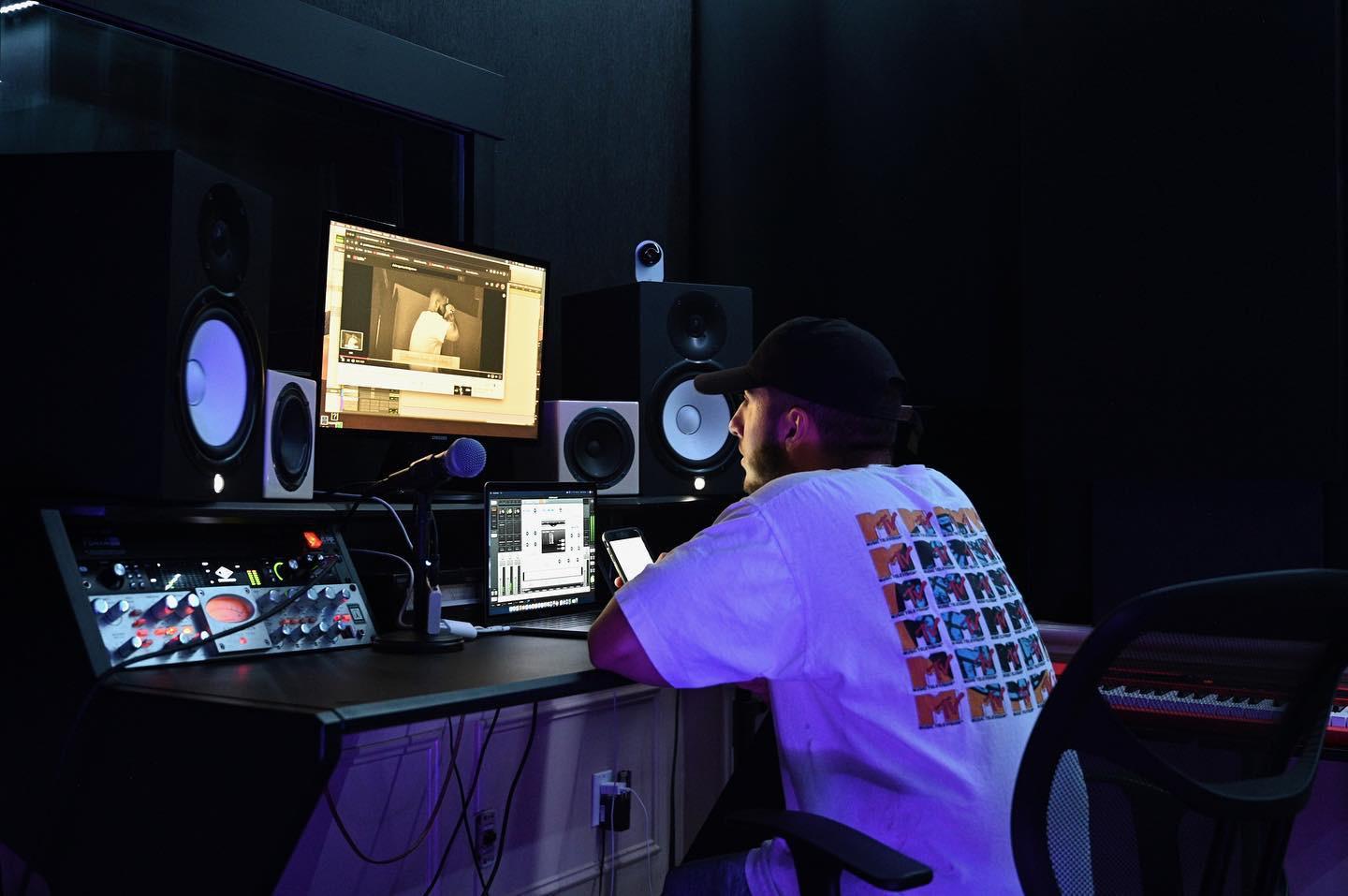Increasing opportunities created by technological advances mean everyone can start their own small business with just a few clicks. By becoming an entrepreneur, you get a chance to be your own boss, invest in what you enjoy, manage your own time, and make profit from a job that gives you independence and even personal fulfillment. You may think that entrepreneurs are over 30 years old who have settled into life, only with a small business as a hobby. But who said these people have to be a certain age to start their own business and benefit from these perks?
We have asked three promising young online small business owners, from different business services, to tell their stories and provide us tips to inspire and help other aspiring entrepreneurs who want to start an online business of their own.
Let’s meet them:

Gianni Spadafora: Now or Never Firm

Alex Hubbs: Handmade 4 U

Giordano Exotic: Exotic Snax GTA
A survey with a total of 15 young adults, 18 to 25 year olds, demonstrated that 93 per cent of them responded that they did not own an online small business, yet 71 per cent have thought about it. This shows that this generation is aware of the impact of the small business industry.
Do you own an online small business?
Have you ever thought about having one?
The survey also demonstrated what kind of business these young adults want to run if they ever had one. The response was that 13.3 per cent of them wanted to have a business focused on food services; 26.7 per cent wanted a secondhand business; 66.7 per cent wanted a handmade apparel business; 13.3 per cent a web creation business and 6.7 per cent a cosmetic business.
1. Find a business idea
Before you start your business, you need an idea to focus on and take it from there. There are multiple business ideas that you can think of such as food services, handmade apparel, design creation, thrift selling, pet services, cosmetics, etc.
Alex's TIP
Hubbs says that when it comes to a business idea, interest and confront are the key. "Just do what you personally like/are interested in. You can find a way to express yourself within that," she says. "You don’t need to feel forced to do anything you’re not comfortable with."
Photos by: Alex Hubbs
2. Find a target audience, your niche
Every business has a niche, a specific targeted audience that they sell their products to. You need to find yours, whether it’s a certain demographic, such as children or young adults, or a specific group of people that consume what you are going to sell.
Giordano's TIP
Giordano says that "it is important to be guided by a niche so your business revolves around the subject." He goes on to say "it is also important to have a target audience and cater to them."
3. Start a business plan: Budget, inventory, etc.
A budget to start your business is definitely necessary and it helps a lot, even thought you have to face the risk of not getting your money back at first. But it’s an investment, and all investments are risky. First, you have to know what is your current asset, and how much can you use part of it as a business budget.
Gianni's TIP
Gianni says that funding is indeed, fundamental when it comes to starting up a small business. "Structure your business plan and get funding."
Alex's TIP
Alex's situation can be experienced by many, the total lack of budget. "I didn’t budget that much because I didn’t have much money anyways," she says humorously. "So I just bought what I felt I could afford at the time and made what I could." And that is the best advice, when you can't afford to budget, you have to buy only what is necessary. You can always borrow from friends or family, but always make sure you pay them back. When comes to inventory and planning, Hubbs says "inventory isn’t too bad because beads don’t take up too much space, but I do have a little rolling cart that is full of only beading supplies, she says. "In terms of a business plan because I’m in school it’s a bit difficult to figure out one while also creating. Honestly I just work when I can currently and try to stay active, but when I have more time I try to plan it more and have actually 'drops' with a set number of products being released at a set time."
Giordano's TIP
As he deals with food services, Giordano says that the purchase of products to sell has to be done in bulk . "It's beneficial to buy your product you sell in bulk to save money in the long run."
Photos by: Giordano Exotic
4. Create the name of your business and register it at Service Ontario
Some people overlook the name of a brand, but it is one of the most important aspect of a business. When you name your business, you sell the first part of your brand to customers. Registering your business helps create your own identity and makes sure your name is unique and most importantly, easy to declare on taxes.
Here’s a little video as an example:
Gianni's TIP
Gianni's business, Now or Never Firm, had to be officially registered at Service Ontario. "I had to register [my business] by paying the fee, which made legal for him to earn money and declare my taxes."

Photo by: Gianni Spadafora
5. Find a platform that best suits you
Now that’s you’ve done the research, it’s time to find an online website to build your business. Choose the best platform that you feel represents the style of your business.
Alex's TIP
According to Hubbs, stick with what you know is best. "I chose Instagram because that’s what I know and I didn’t want to make any big switches," she says. "Same with Depop which is where I sold prototypes initially."
6. Advertise
Advertising can mean a lot of things, yet you can make all of them in order to attract more audience. Connections, social media management, ads, etc, all of them are examples of advertisement that you can explore and must invest so you can thrive in the business industry.
Giordano's TIP
According to Exotic, networking over social media is the best you can do while you are running a business. "Use social media as a marketing tool, it's a resource you must use to promote and market your products." He also acknowledges the importance of connections. "The more you expand connections, the more you open opportunities for yourself," he says.

Photo by: Giordano Exotic
Now that you know the steps to start your business, we have gather few of the most popular e-commerce platforms in the industry to guide you through them. Here are some options for you to start your online business just like our young entrepreneurs have started theirs:
-
Etsy
Etsy is an e-commerce platform that users buy and sell items, mainly handmade jewelry and vintage goods. PROS: Easy to set up, perfect for the specific niche. CONS: Charges transaction from users.
Start Business -
Shopify
Shopify is an e-commerce platform that lets its users with set I-their online stores. PROS: Easy to set up, customizable themes, great marketing tools. CONS: Only available through paid subscription.
Start business -
Depop
Depop is a platform where users can sell handmade apparel, but mostly vintage clothing and apparel. PROS: Easy to set up, sell AND ship. CONS: Not the best to use on desktop and charges fees on sales.
Start Business -
Wix
A free website builder tool. PROS: Fully hosted, easy to use, free forever plan. CONS: Paid plan for analytics, and tracking of your business.
Start Business -
Squarespace
A website building and hosting company that lets users build their webpages. PROS: Amazing templates, good customer support, no transition fees. CONS: Paid and no phone support.
Start Business -
BigCommerce
BigCommerce is an e-commerce platform that users can easily build their business. PROS: Easy to manage and no fees on sales. CONS: Paid only, and designs are not user friendly.
Start Business











